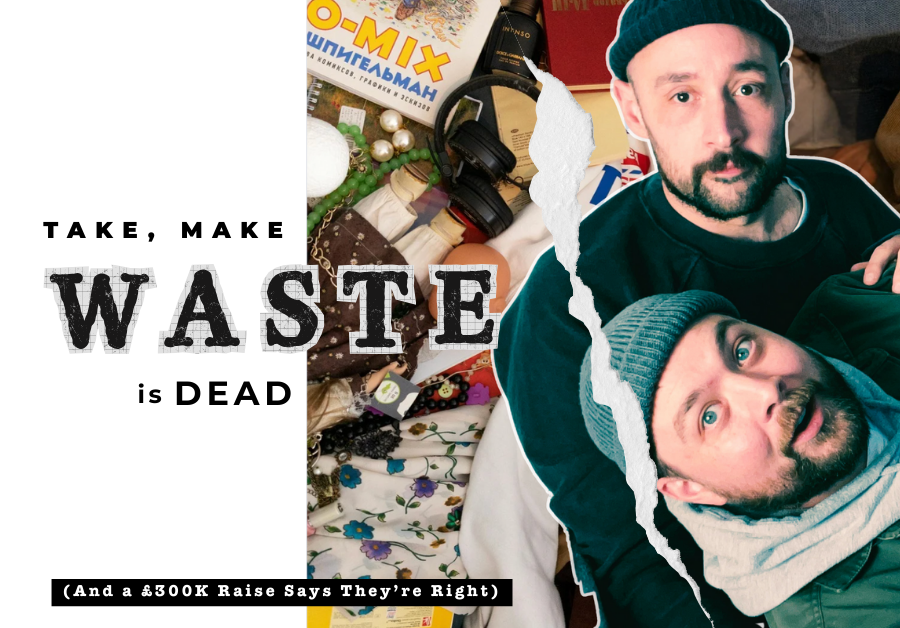As we’ve touched on in previous posts, MOHARA began as a business that initially provided traditional website development for small and medium-sized clients. As the business grew, our digital production offering transformed – we now service businesses of all shapes and sizes, helping to provide the right tech solution for our clients.
But that’s only half the business. The other arm of MOHARA is our Ventures team.
Origins
Most people won’t know this, but I (Ben Blomerley – Venture Director) was MOHARA’s first customer. I started a marketplace-centric business in 2011 and initially, Rich and the team provided the standard web development services I needed, but we quickly started to realise the relationship could reach further.
The Need for Flexibility
MOHARA wasn’t the first agency I’d worked with, but I encountered a common problem when I worked with more traditional agencies. What I needed changed frequently depending on customer feedback and trying to get market fit – yet what most agencies wanted was a fixed scope. Rich and his team were much more flexible, which for an emerging start-up is so crucial.
Also, time and time again, I’d try and find the right Technical Co-Founder (“TCF”). The few times I got close, the demands (chiefly; a big salary and a large stake in the business) were just not possible.
Building the First Draft of the Model
Coupled with that, when attempting to raise funds, Angels and VCs would say “we like you and the business but come back when the team is complete”. It was a total Catch-22 situation.
Born from this tough position was the first draft of our Venture model. We started thinking that maybe we had hit upon something – providing TCF services for businesses who couldn’t afford the risk and cost of a full-time individual to be a TCF. That, coupled with our in-house ability to develop and build the product, meant we were providing the complete technical resource to emerging businesses.
The Model
There are many strands to our Venture model hypothesis, but the most important is this idea of ‘level appropriateness’. In larger businesses, you will usually have someone hired into a role that they are a specialist in. We observed that in a start-up, people seldom perform just the role they were hired for – in a smaller team, you have to fill in the gaps where needed. And when you consider the salaries and equity most co-founders require, you’re going to be paying them to do something for which they’re massively over-qualified and likely not a good use of their time (which ties into another of our models, about ‘to-do list deadlock’).
The Need in the Market
You wouldn’t have your CFO processing transactions or your CMO in the weeds of an Adwords campaign. So why ask your CTO or TCF to fix bugs or deliver day-to-day coding?
A TCF, when broken down, is a Product Owner, a Project Manager, a Designer, a Solutions Architect, and a Programmer (in several languages). They also need to care about meeting customers, getting deep into the market fit, feeding into the business model and helping pitch to investors.
That is a lot of work for one person – and an extremely varied and rare skill set to find too. And that’s where MOHARA has found our market fit.
What We Bring
We bring the strategic elements: what technology to build? How to position your start-up with investors? How to build an effective business from the product? All within our interim CTO onshore.
We sometimes play the role of Product Owner, or if the founder is technical enough, we will operate as the Project Manager. We utilise and consult our design team on UX/UI based in the UK, and have a range of tech talent – from Managing Engineers down to junior developers from our development hub in Bangkok. This model allows us to leverage the value of being offshore with the control of it being our own business.
Market Fit
We’re excited about the positioning of Ventures. We truly feel that this is the right time and right place for us to be pushing forward with this model.
Our core beliefs have grown against a backdrop of some of the most interesting and innovative times we’ve seen in the business world. Only 4% of millennials expect to have a career with one employer, while 608,110 new businesses were started in 2015, a new record, a trend that has continued year after year.
The demand for tech resources is overwhelming. The competition isn’t just between start-ups or even tech firms – it is against every business or charity or government.
Let’s Be Pioneers Together
Tech is at the heart of our world now. Couple this with the generational shift in how people want to live their lives and manage their careers, and there’s a distinct mismatch between supply and demand.
Our research shows that 62% of founders looking for a co-founder were looking for a CTO. We break that Catch-22 situation and that releases more people to become entrepreneurs. That’s why we do what we do. We want to help people with great ideas and skills do what they love, making it more likely that they – and we – might succeed. We want to build cool stuff with great people. Let’s be pioneers together.











